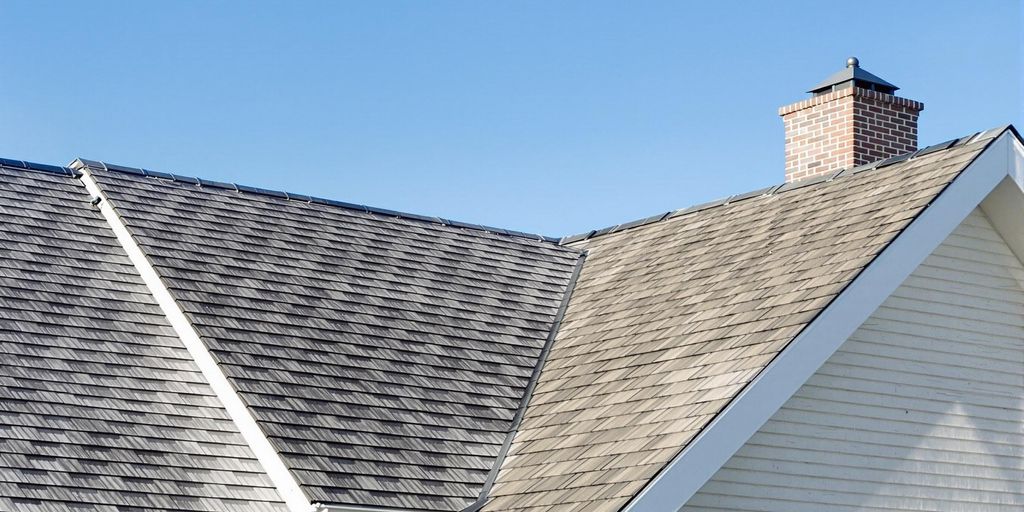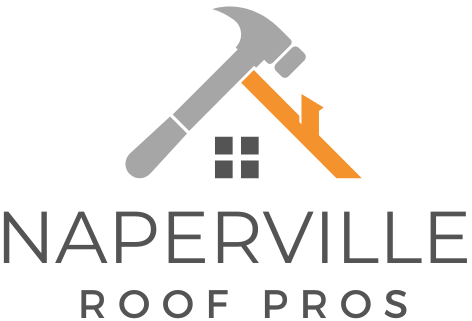
Thinking about getting a new roof in Naperville? It’s a big decision and not just about picking out shingles. Costs can vary, and it’s good to know what you’re getting into. This guide is here to help you figure out what to expect when you’re budgeting for a new roof in 2025.
Key Takeaways
- Roofing materials can greatly affect the overall cost. Asphalt shingles are usually cheaper, while metal and eco-friendly options might cost more.
- Labor costs in Naperville can vary, so it’s smart to get a few quotes from local contractors to see what’s reasonable.
- The time of year can influence prices. Roofing in the off-season might save you some cash.
- Deciding between repair and replacement depends on the roof’s condition and your long-term plans for the house.
- Financing options and insurance can help manage costs, so explore these before making any decisions.
Factors Influencing the Cost of a New Roof in Naperville
Material Choices and Their Impact on Cost
Choosing the right roofing material is like picking the perfect outfit for your house. You want it to look good, last a long time, and not break the bank. In Naperville, you’ve got options like asphalt shingles, metal, or even eco-friendly materials. Asphalt is the most common choice because it’s affordable and does the job well. But if you’re thinking long-term, metal might be worth the investment despite the higher upfront cost.
Labor Costs and Local Rates
Labor is another big chunk of the roofing cost. In Naperville, local rates can vary depending on the contractor’s experience and the complexity of the job. Hiring skilled professionals might cost more initially, but it can save you headaches down the road. You’ll want to get a few quotes to see what the going rate is and ensure you’re getting a fair deal.
Seasonal Variations in Roofing Prices
Believe it or not, the time of year can affect how much you pay for a new roof. During peak seasons like late spring and summer, demand is high, and so are the prices. If you can plan your roofing project for the off-season, like fall or early spring, you might snag a better deal. Just keep in mind that weather conditions can impact scheduling and completion times.
When planning a roofing project, consider all these factors to balance quality, cost, and timing. A little research can go a long way in making sure your new roof is both durable and budget-friendly.
Comparing Roof Repair and Replacement Costs
When to Consider Roof Repair
Deciding whether to repair or replace your roof can be a tough call. If your roof has minor issues, like a few missing shingles or a small leak, a repair might do the trick. Repairs are generally cheaper upfront, and they can be a good choice if your roof is relatively young and in decent shape otherwise. But keep in mind, if you’re constantly patching things up, those costs can add up over time, especially if your roof is getting on in years or facing harsh weather regularly.
Benefits of Full Roof Replacement
On the flip side, a full roof replacement is a bigger investment, but it could save you money in the long run. Replacing your roof gives you a clean slate, ensuring all components are fresh and durable. You won’t have to worry about underlying issues lurking beneath the surface, and you’ll likely boost your home’s resale value. Plus, a new roof can offer better energy efficiency, which might lower your utility bills.
Cost Implications of Repair vs. Replacement
When it comes to costs, repairs are usually less expensive initially. Here’s a quick breakdown:
- Repair Costs:
- Replacement Costs:
"Opting for a roof replacement might feel like a big leap, but it offers durability and peace of mind that a patchwork of repairs simply can’t match."
Before making a decision, consider your budget, the age of your roof, and how long you plan to stay in your home. For more insights on choosing the best roofing options for performance and longevity, check out top roofing options.
Choosing the Right Roofing Contractor in Naperville

Finding the right roofing contractor in Naperville can feel like a daunting task, but it doesn’t have to be. Knowing what to look for can make all the difference.
Qualities of a Reliable Roofing Contractor
When you’re looking for a roofing contractor, there are a few key qualities to keep in mind:
- Experience: Look for contractors who have been in the business for several years. Experience often means they know how to handle various roofing challenges.
- Reputation: Check online reviews and ask for references. A good reputation is a strong indicator of quality work.
- Licenses and Insurance: Make sure the contractor is fully licensed and insured to protect yourself from any liabilities.
Questions to Ask Potential Roofers
Before hiring a contractor, it’s important to ask the right questions. Here’s a list to get you started:
- How long have you been in business?
- Can you provide references from past clients?
- What kind of warranty do you offer on your work?
These questions can help you gauge the contractor’s reliability and expertise.
Checking Credentials and Reviews
It’s crucial to verify the credentials of any roofing contractor you’re considering. Here’s how:
- Licensing: Ensure they have the proper licenses to operate in Naperville.
- Insurance: Confirm they have liability and workers’ compensation insurance.
- Online Reviews: Look them up on platforms like Yelp or Google to see what past clients have to say.
Choosing the right contractor isn’t just about getting the job done—it’s about ensuring your peace of mind throughout the process. A little research upfront can save you a lot of headaches later.
Understanding Roofing Materials and Their Costs

Asphalt Shingles: Pros and Cons
Asphalt shingles are the go-to for many homeowners. They’re affordable and easy to install. They’re also pretty durable for the price. On the downside, they don’t last as long as some other materials. You might find yourself replacing them sooner than you’d like. Plus, they can be a bit plain-looking. If you’re considering asphalt, you might want to check out Consumer Reports’ top picks to get the best bang for your buck.
Metal Roofing: Is It Worth the Investment?
Metal roofs are like the superheroes of roofing materials. They last a long time—up to 50 years or more—and are great for energy efficiency. They reflect sunlight, which can help keep your home cooler. But all that greatness comes at a cost. They’re more expensive upfront. Installation can be tricky too, so you’ll need a pro. If you plan to stay in your home for a while, it might be worth the splurge.
Eco-Friendly Roofing Options
Going green with your roof can be a fantastic choice. Options like recycled shingles or living roofs are gaining popularity. They’re not just good for the planet but can also offer unique aesthetic appeal. However, these options can be pricey and might require special maintenance. Still, for those committed to sustainability, they offer a way to reduce your carbon footprint while giving your home a unique look.
Investing in the right roofing material is about balancing cost, durability, and style. Each option has its perks and pitfalls, so consider what matters most to you and your home before making a decision.
Financing Options for Your New Roof
Exploring Roofing Loans and Financing Plans
When it comes to financing a new roof, there are several options available to homeowners. Roofing loans are a popular choice, offering various terms that can fit different financial situations. Many lenders provide quick approvals, and some even offer zero down payment options, making it easier to start your roofing project without delay.
Some financing plans might include:
- Personal Loans: These are unsecured loans with flexible terms, often used for home improvement projects.
- Home Equity Loans: These loans allow you to borrow against the equity in your home, usually at a lower interest rate.
- Credit Cards: While not always the best option due to higher interest rates, they can be useful for smaller projects or emergencies.
It’s important to carefully review the terms and conditions of any loan to ensure it fits your budget and long-term financial goals.
Insurance Considerations for Roof Replacement
Before replacing your roof, checking your insurance policy is crucial. Some policies might cover part of the replacement costs, especially if the damage was caused by a storm or other covered events. It’s wise to document the damage thoroughly and contact your insurance provider to understand what is covered.
Consider these steps:
- Review your insurance policy for coverage details.
- Document any damage with photos.
- Contact your insurance company to discuss your options.
Budgeting for Unexpected Roofing Costs
Even with a solid plan, unexpected costs can arise during a roofing project. Setting aside a contingency fund can help manage these surprises. It’s recommended to budget an additional 10-15% of the estimated cost to cover unforeseen expenses, such as additional repairs or material price increases.
For peace of mind, explore fast approvals and zero down payment options that align with your financial needs, ensuring you can handle any unexpected costs without stress.
The Long-Term Value of a New Roof
Enhancing Home Value with a New Roof
Getting a new roof isn’t just about keeping the rain out. It can also boost your home’s curb appeal. A neat, modern roof gives your house a fresh look that can make it stand out on your street. Potential buyers love this because it means they won’t have to worry about a roofing project anytime soon. So, if you’re thinking of selling, a new roof can actually be a smart investment.
Energy Efficiency Benefits
A new roof can help keep your home cozy. Modern roofing materials often have better insulation, which means your house stays warmer in the winter and cooler in the summer. This can lead to lower energy bills. Some options even come with reflective coatings that bounce the sun’s rays away, reducing heat absorption. It’s like giving your house a little eco-friendly upgrade.
Longevity and Maintenance Considerations
With a new roof, you’re looking at fewer repairs down the line. Most new roofs are built to last, with some materials offering up to 30 years of protection. This means less hassle and fewer unexpected costs. Plus, many new roofs come with warranties that cover materials and workmanship, giving you peace of mind.
Investing in a new roof might seem pricey at first, but when you consider the reduced maintenance and energy savings, it often pays off in the long run.
Navigating Insurance Claims for Roof Replacement
Understanding Your Insurance Policy
Knowing your insurance policy is like having a map before a road trip. It’s crucial to understand what your policy covers and what it doesn’t. Check if the policy covers full replacement or just repairs. Policies differ, so read the fine print or talk to your agent. Some policies cover damage from specific events like hail, while others might not. It’s also important to know the difference between replacement cost value and actual cost value, which can affect how much you get back.
Filing a Claim for Roof Damage
Filing a claim can feel overwhelming, but breaking it down can help. Start by inspecting the damage yourself, then call a professional for a detailed assessment. Document everything with photos and notes. This evidence is key for your claim. Next, contact your insurance company and submit your claim with all the documentation. Be clear about the damage and how it happened. Stay in touch with your insurer throughout the process to ensure everything is moving along.
Working with Insurance Adjusters
Once your claim is filed, an insurance adjuster will visit to assess the damage. This is a crucial step. Be there during the inspection to answer any questions and provide your documentation. The adjuster’s evaluation will determine what your policy covers. If you disagree with their assessment, you can request a second opinion or hire a public adjuster. Remember, having a roofer’s report can support your case, making it easier to argue for the coverage you need.
It’s not just about getting your roof fixed; it’s about protecting your home and ensuring you get the compensation you deserve. By understanding your policy, filing claims correctly, and working effectively with adjusters, you can navigate the insurance process more smoothly.
Wrapping It Up: Making the Right Roofing Choice
So, there you have it, folks. Figuring out the cost of a new roof in Naperville isn’t just about crunching numbers. It’s about weighing your options, thinking about the future, and maybe even chatting with some pros like Naperville Roofing and Construction. Sure, it’s a big decision, and yeah, it can be pricey. But remember, a solid roof over your head is worth every penny. Whether you’re patching up or going for a full replacement, make sure it fits your budget and your long-term plans. At the end of the day, it’s all about keeping your home safe and sound. And hey, if you’re still on the fence, don’t hesitate to reach out to the experts for some guidance. Good luck with your roofing journey!
Frequently Asked Questions
How much does a new roof cost in Naperville?
The cost of a new roof in Naperville can vary depending on factors like the material you choose, the size of your roof, and the complexity of the installation. On average, homeowners might spend between $5,000 and $15,000.
Is it better to repair or replace my roof?
If your roof has minor damage, repairs might be enough. However, if it’s old or has major damage, replacing it could be more cost-effective in the long run.
What are the best roofing materials for Naperville weather?
Asphalt shingles are popular due to their affordability and durability. Metal roofs are also a good choice as they can withstand harsh weather conditions.
How do I find a reliable roofing contractor in Naperville?
Look for contractors with good reviews, proper licenses, and insurance. Asking for recommendations from friends or family can also be helpful.
Does homeowners insurance cover roof replacement?
Homeowners insurance might cover roof replacement if the damage is due to a covered event like a storm. It’s best to check your policy or talk to your insurance provider.
Are there financing options available for a new roof?
Yes, many roofing companies offer financing plans. You can also explore loans or check if your insurance can cover part of the cost.

